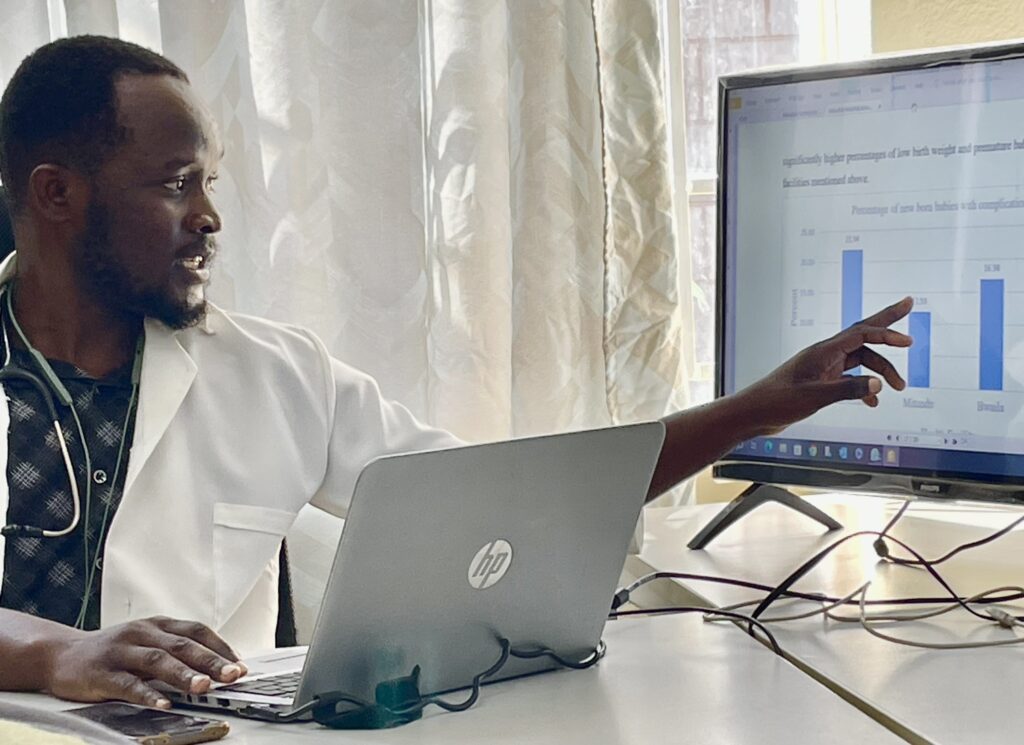The teams from Action for Progress (AfP) and the Malawi Project (MP) traveled to the northwest part of Lilongwe District to distribute baby packs to many expectant mothers. The hospital director for the Kabudula Community Hospital met the team near the entrance and took them directly to his office. The office was well-kept and nicely outfitted, and it was evident he took great pride in the facility. A 2020 graduate of the University of Malawi, College of Medicine, and before that the Kamuzu Academy in Kasungu, this young man is sharp and knows his business well. His Linkedin profile reads,
“I am Dr. Mackson Zephaniah, and I currently hold the position of Hospital Director at Kabudula Community Hospital, operating under the Lilongwe District Health Office (DHO). With a deep-rooted passion for healthcare and a commitment to improving the well-being of individuals in underserved communities, I have dedicated my career to providing comprehensive medical care and implementing sustainable healthcare programs. As the Hospital Director, I oversee the strategic planning, operational management, and quality assurance of the hospital, ensuring that our services align with the highest standards of medical excellence.”
Serving as both doctor and hospital administrator he greeted the guests warmly and invited them to know more about his facility. Zephaniah turned his computer screen toward his guests and began to methodically note, in words as well as with graphs and charts, the positives and negatives he is working with at this facility came vividly onto the screen. While most of his conversation was upbeat and positive, he also brought attention to a high mortality rate among newborns at his facility. He noted they have a 13% mortality rate (Malawi has a national average of 3.3%) because they do not have the proper equipment to diagnose problems that arise after the birth of the baby. He noted that by the time they can detect a problem and get the patient or baby to Kamuzu Central Hospital, it is too late. He added that it is even sadder because they have sufficient space set aside for this after-birth care and monitoring, but they simply do not have the equipment. The hospital handles 400 births a month in a 20-bed facility.
It was sad to hear this doctor describe his plight. With a Bachelor of Medicine, Bachelor of Surgery, MBBS, and Medicine he is qualified for the job, he is willing, but as is too often the case, he does not have the equipment to do what he is trained to do.
AfP and the MP are seeking the equipment needed to monitor mothers and newborns before and after birth in this facility. Your help is needed to fund shipping this equipment to the hospital. Go to: www.malawiproject.org/donate

